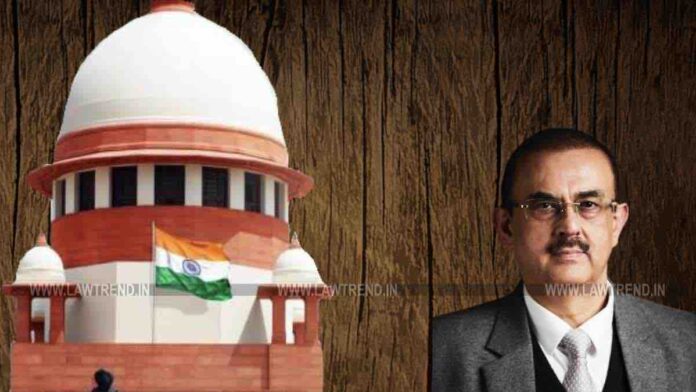In a significant internal development within the Supreme Court legal fraternity, the President of the Supreme Court Bar Association (SCBA), Vikas Singh, has written to Chief Justice of India Bhushan Ramkrishna Gavai, accusing the Supreme Court Advocates-on-Record Association (SCAORA) of acting beyond its jurisdiction.
The letter, dated Wednesday, raises objections to the SCAORA’s recent communications regarding matters of general infrastructure and bar facilities at the Supreme Court, which the SCBA president contends are exclusively within the SCBA’s domain.
SCBA Claims Exclusive Representation of Bar Interests
Vikas Singh emphasized that the SCBA represents the collective interests of all categories of lawyers practising before the Supreme Court, including Advocates-on-Record (AoRs), senior advocates, and non-AoR practitioners. According to Singh, the SCBA currently has 22,734 members, including 906 senior advocates and approximately 19,000 non-AoR lawyers.
In contrast, he pointed out that there are 3,786 AoRs registered with the Supreme Court, of whom only around 3,000 are members of the SCAORA. “In that view of the matter, SCAORA does not even represent all AoRs registered in Supreme Court,” Singh wrote, arguing that SCAORA’s remit should be limited to AoR-specific issues like filing procedures and registry protocols.
Biometric Entry Controversy
A recent move by the SCAORA to engage with the Supreme Court Registry on implementing biometric entry for lawyers was also criticized in the letter. Singh strongly opposed the proposal, stating that there was “absolutely no question” of bar members voluntarily offering such extensive personal data to the registry.
“If on the other hand, there is any mandate from the Supreme Court, for security reasons, upon discussion with the SCBA, the Bar would, of course, fully cooperate,” the letter noted, highlighting concerns over data privacy breaches.
Call for Institutional Discipline and Cohesion
Singh stated that his communication aimed to preserve institutional discipline and avoid overlaps or conflicts between the two bodies. “It is necessary to promote a unified voice within the bar while ensuring seamless collaboration and respect for institutional integrity,” he wrote.
He concluded that the SCBA remains the only court-annexed bar association with the official mandate to represent practitioners in the Supreme Court and cautioned against SCAORA’s attempts to engage in broader institutional matters outside its scope.




